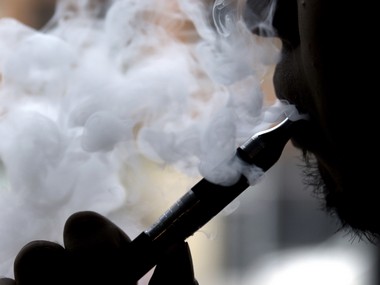The Government of India on Wednesday announced that it’s banning e-cigarettes and vaping devices because they are “harmful” for the youth. Perhaps the most absurd equation about this ban is the one between the shrill excitement of Union finance minister Nirmala Sitaraman while announcing the ban on e-cigarettes and all the paraphernalia that comes with it, and Vikas Sheel, an official of the health ministry, saying that the usage is not banned, only manufacture, import, sale, advertisement, and distribution of e-cigarettes device and tobacco cartridges are. That is like saying that you can drive your car at breakneck speed but you are not getting any more petrol. One would be a lot more impressed at this effort to save people from themselves if the same ban applied to the tobacco industry. It is ironic that Gujarat tobacco farmers are already agitating for a relaxation of the blanket ban because it will affect their output. Ironic because much of the reasoning behind the ban on vaping is aimed at protecting the very same farmers whose produce kills 900,000 a year in nicotine, tar and cancerous inhalation of chemicals in India and will continue to do so. In a nation where, according to a 2018 PTI report, five million people die of medical neglect, this overnight decision is not reflective of any sloshing about of the milk of human kindness in the government veins. According to ASSOCHAM India, the tobacco industry contributes a whopping Rs 11,79,498 crore to the economy and employs an estimated 4.57 crore people. This is the vote bank that dictates this decision. The jury is still out on the ill effects of vaping and the death list (at present 450 casualties globally) is nowhere near that of smoking or chewing ‘tambaku’. So, why let the alternative which does not have the estimated 7,000 toxic chemicals in a puff nibble at this huge fiscal source and the employment numbers? In a city like Delhi, for example, it is a pretty safe bet that the act of breathing itself causes more pulmonary problems in adults and children than vaping.
It is this official ‘look, how considerate we are’ veneer given to the decision that irks one the most. If the government truly meant to care, the whole tobacco industry should have been indicted and all tobacco products per se have been banned with Indian tobacco farmers given aid for alternate crops. It is pretty much like air carriers who gilded their decision to ban inflight smoking with concern for the public when the fact is that they wanted to avoid possible litigation from second-hand smoke inhalation and curtail expenses incurred in cleaning the flues of the air conditioning from the tar that literally gummed up the works. It had nothing to do with love. This announcement of a ban on e-cigarettes and vaping devices is a win-win for the government. It styles itself as a warm and fuzzy benefactor of public health. At the same time, it puts a friendly arm around tobacco farmers and the tobacco industry and ensures that the jobs of those employed by it remain intact. And it does that without letting on the fact that cost of treatment for diseases directly linked to consumption of tobacco amounts to a colossal $907 million for smoked tobacco and $285 million for smokeless tobacco (refer to tobaccocontrol.com) every year. In a nation where a million children die from medical neglect, in the same time span, saving folks from themselves becomes a priority. Let’s be cruelly honest. You really think the underground smuggling network will not get you refills. The Health Ministry official lives in la-la land if he thinks people will dry up when their current stock is finished. By now the smugglers must be spitting on their hands with glee… so much profit to be made. Like with alcohol in dry states being so easily accessed, vaping products will just cost a little more in the black market making this whole exercise kneejerk and pointless.


)

)
)
)
)
)
)
)
)



